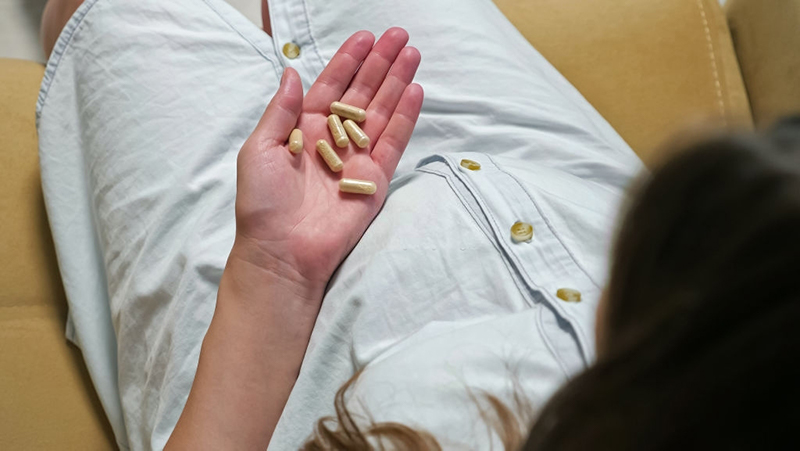Researchers at the UC Davis School of Medicine discovered that probiotics dramatically relieve the symptoms of pregnancy-related nausea, vomiting, and constipation in a first-of-its-kind study. The findings were published in Nutrients, a peer-reviewed journal.
Nausea and vomiting afflict roughly 85% of pregnancies and can have a substantial impact on quality of life, especially during the first trimester. probioticseverything.com probiotic pregnancy
“At this time, the reason of nausea and vomiting during pregnancy is unknown. The study’s lead author, Albert T. Liu, an obstetrics and gynecology professor, said, “Various explanations have been presented, but none of them is conclusive.” probioticseverything.com probiotic pregnancy
“During pregnancy, nausea, vomiting, and constipation can dramatically reduce the quality of life for patients. When nausea and vomiting occur during pregnancy, they can be difficult to control, and the patient may need to be hospitalized,” Liu explained.
Microbes that are beneficial
“Beneficial bacteria” is how probiotics are referred to. Yogurt, kimchi, kefir, sauerkraut, and tempeh are examples of foods that contain them. Food supplements containing probiotics are also available. Probiotics or prebiotics were the third most often utilized dietary supplement for adults, according to the National Center for Complementary and Integrative Health.
Probiotics are supposed to support the “gut microbiome,” which is a colony of various bacteria found in the gastrointestinal system. probioticseverything.com probiotic pregnancy
Hormones like estrogen and progesterone rise during pregnancy, causing a slew of bodily changes. These increases may alter the gut flora, affecting digestive system processes and resulting in unpleasant symptoms such as nausea, vomiting, and constipation.
The researchers wanted to see if taking a probiotic pill could help with gastrointestinal function during pregnancy. probioticseverything.com probiotic pregnancy
The experiment lasted 16 days. A total of 32 people took a probiotic capsule twice a day for six days before taking a two-day break. The cycle was then repeated.
Probiotics were sold over-the-counter and primarily contained Lactobacillus, a type of beneficial bacteria. At the time of manufacturing, each capsule contained approximately 10 billion live cultures. probioticseverything.com probiotic pregnancy
During the trial, participants kept 17 daily observations of their symptoms, totaling 535 observations for the researchers to analyze statistically.
The researchers discovered that consuming the probiotic reduced nausea and vomiting significantly. The number of nausea hours (the number of hours individuals felt sick) and the number of times they vomited were both reduced by 16 percent and 33 percent, respectively. As measured by questionnaires, probiotic consumption reduced symptoms associated to quality of life, such as weariness, low appetite, and difficulties maintaining typical social activities.
Probiotics were also found to dramatically improve constipation.
“I’ve noticed that probiotics can help with nausea, vomiting, and constipation over time.” “It’s really exciting that the study confirmed this,” Liu said. “Many of my other patients who weren’t in the research have benefited from probiotics,” Liu said.

Gut microorganisms and byproducts provide new insights
Before and during the trial, participants also provided feces samples. The samples were examined to determine the type and number of bacteria present, as well as the various digestive byproducts. probioticseverything.com probiotic pregnancy
This allowed the researchers to see if biomarkers in the feces were linked to more acute nausea and how the probiotics affected people who had different baseline biomarkers at the start of the study. probioticseverything.com probiotic pregnancy
One discovery was that having a low number of bacteria that contain the bile salt hydrolase enzyme, which produces bile acid to help the body absorb nutrients, was linked to greater pregnancy-related vomiting. Probiotics boost the number of bacteria that produce bile salt hydrolase, which could explain why the supplements reduced nausea and vomiting.
Another conclusion was that at the start of the trial, high levels of the gut microorganisms Akkermansia and A. muciniphila were linked to increased vomiting. The probiotic reduced the quantity of those specific microorganisms while also reducing vomiting. This shows that Akkermansia and A. muciniphila could be useful indicators for predicting pregnant vomiting.
Another finding revealed that consuming probiotics improved vitamin E levels. Vitamin E levels were found to be linked to lower vomiting ratings.
“This study adds to our understanding of the role of gut bacteria in gastrointestinal function during pregnancy.” “Our gut microbiota explains why we are what we eat and why bacteria-generated metabolites and products have such a significant impact on our health,” Wan explained. “They have an impact on gastrointestinal health, skin health, and neurological function.” probioticseverything.com probiotic pregnancy
Although the findings are promising, the researchers warn that more research is needed to establish the probiotics’ effects due to the limited sample size.
“Previous research has shown that probiotics can help avoid liver inflammation. According to Wan, “the current study could be one of the first to highlight the benefits of probiotics in pregnancy.” “It would be fascinating and crucial to see if probiotics can help cancer patients with nausea and vomiting caused by chemotherapy.”
Shuai Chen from the Department of Public Health Sciences, as well as Prasant Kumar Jena, Lili Sheng, and Ying Hu from the Department of Pathology and Laboratory Medicine at the University of California, Davis, contributed to this work. probioticseverything.com

